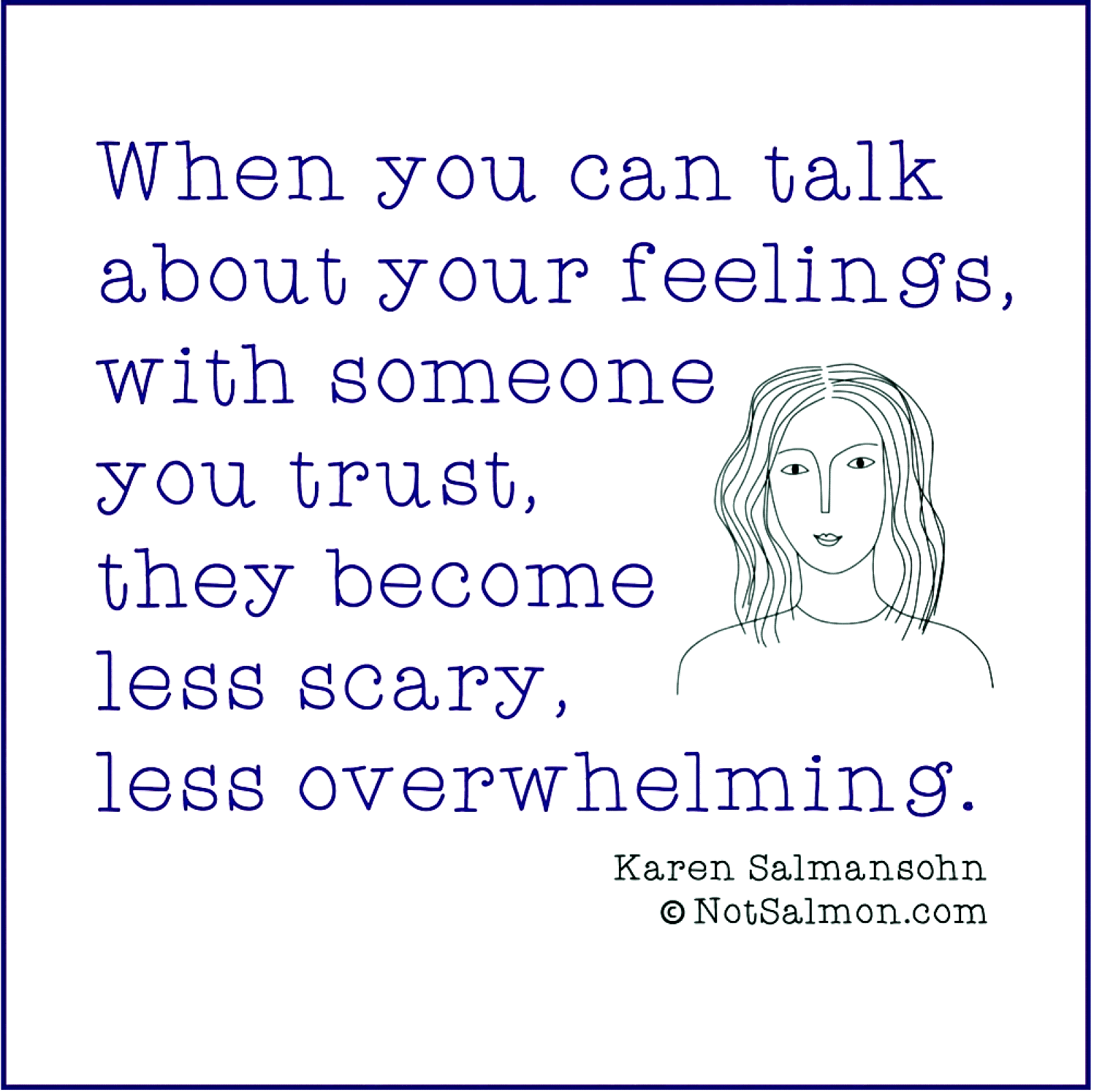 Unfortunately, mental health issues are the reality for those struggling with substance abuse.
Unfortunately, mental health issues are the reality for those struggling with substance abuse.
More than 50 percent of people with substance abuse disorder have lingering mental health issues during recovery.
That is why we should stress that recovery and strong mental health go hand in hand, and working on your well-being is a huge step towards complete healing and a lifestyle without unhealthy habits.
I’m sharing this info because I am bestselling wellness author.
I founded a nutritionist recommended online program called:
>>>The Stop Emotional Eating Course!
I love sharing insights and techniques to help people to enjoy their healthiest life.
And so I put together this guide on ways to take care of your mental health in sobriety.
So, let’s go through some easy ways to take care of your mental health in sobriety and ensure lifelong results.
Mental health and sobriety – what’s the link?
Let’s tell more about the importance of strong mental health for recovery. Sobriety is a complicated process, and it’s even more challenging for those with poor mental health.
Recovery takes being physically and mentally strong, which is why you should not only take care of your body with proper diet and exercises but also focus on making your psyche as powerful as ever.
That ensures you don’t give up along the way, go back to substance abuse, and disrupt the whole process.
Furthermore, good mental health will help you have more confidence, don’t live in regret but take a positive attitude towards this new chapter in life. Long-term positive results are only possible with positive well-being, regular sleep patterns, and encouraging relationships with people around you. However, you’re responsible.
And this guide will help you take care of yourself and ensure good mental health in sobriety. So let’s get started!
8 Ways to Take Care of Your Mental Health in Sobriety
1. Start being comfortable in your skin
 Success in sobriety depends on you, so you need to feel comfortable with your mind and body. Take time whenever possible, and learn to be alone without feeling unsettled and anxious. That doesn’t mean you should take days away from other people.
Success in sobriety depends on you, so you need to feel comfortable with your mind and body. Take time whenever possible, and learn to be alone without feeling unsettled and anxious. That doesn’t mean you should take days away from other people.
These could be moments you can do something you enjoy by yourself. Reading a book in a favorite nook in your home, going for a walk, taking a long bath – do something you enjoy, and stay alone with your thoughts.
That doesn’t have to be long, but it can be very helpful in learning how to enjoy time by yourself without any nasty habits.
Some alone time can be significant when you want to take care of your mental health in sobriety.
2. Choose the people you surround yourself with
Being alone can be therapeutic, but our social environment plays a vital role in recovery. However, consider that surrounding yourself with anyone can be a considerable risk. Certain people will not be supportive enough, or they will judge you or burden you with their issues. Try to choose the people you surround yourself with, ensuring you spend your days in a supportive and positive environment.
3. Put your thoughts into words
 Writing down what you feel can be incredibly therapeutic, even for people who don’t struggle with substance abuse. That is a way to let go of specific emotions and discover things you didn’t even know you had been feeling. Also, it’s sometimes easier to express yourself through the written word, clearing your mind and feeling better about it.
Writing down what you feel can be incredibly therapeutic, even for people who don’t struggle with substance abuse. That is a way to let go of specific emotions and discover things you didn’t even know you had been feeling. Also, it’s sometimes easier to express yourself through the written word, clearing your mind and feeling better about it.
Being your therapist is also one of the essential aspects of Cognitive-Behavioral Therapy (CBT). It helps you explore your thoughts and have a different perspective on your needs and ways to fulfill them. CBT helps recognize the reasons you go for substance abuse, identify harmful thoughts, and find a better replacement.
4. Minimize screen time
Technology can be beneficial and inspiring, but it can also be a massive waste of time and a danger to our mental health. That is why it’s advised to minimize screen time to take care of your mental health in sobriety. Try to replace everyday online activities with others that will make you feel good physically and mentally. Instead of scrolling social media for an hour, go for a run or walk in the local park, do a puzzle, take a language or dance lesson or go for a cup of coffee with a friend.
5. Make your diet better
Food is the fuel to determine how we feel and look both inside and outside. That’s why it’s essential to take care of your mental health. Food that’s low in nutrients, that’s too sugary or salty, will not help your brain function properly, potentially causing mental health issues. Take some time to plan your meals and do on-time grocery shopping so you can easily practice a healthy diet. Not only will you feel good, but your looks will also enhance.
However, it takes time to set up a healthy eating plan and help your body get used to it.
If you are indeed struggling with planning a diet and you know that your immune system is not the best, you can try supplements to get the vitamins you need for good energy and a robust immune system. You can try taking tablets, or for faster results apply for IV Therapy in your area, for example, mobile IV in Fort Worth, without even getting out of your house. Intravenous therapy helps to store your energy, treats flu, and migraines, and is a great way to improve your skin.
6. Physical activity is a way to excellent mental health
 If your goal is strong mental health, try to reach it. Physical activity is a fantastic stress relief and helps cope with anxiety and dangerous thoughts.
If your goal is strong mental health, try to reach it. Physical activity is a fantastic stress relief and helps cope with anxiety and dangerous thoughts.
Jogging, yoga, or any other activity will help you clear your mind, shake off daily stress and feel good about yourself again. Motivation can be an issue here, though.
Try to stay motivated by creating a plan and sticking to it, or have a workout buddy to ensure you don’t give up.
However, explore different training methods to choose the one that fits your abilities and puts you in a better mood.
7. Get help if you need it
You need to seek help for mental health issues like any other health problem. Trusting a professional is a sure way to feel good again, so don’t be afraid to look for help when you feel like you’re losing control over your mental state. Neglecting mental health issues risks them becoming more serious, and there’s an easy way to avoid them.
A professional can help you care for your mental health in sobriety – don’t be afraid to ask for assistance.
8. Express your emotions
 Even though this is easier said than done, expressing your emotions is a fantastic way of dealing with issues that can harm your mental health.
Even though this is easier said than done, expressing your emotions is a fantastic way of dealing with issues that can harm your mental health.
Please don’t bury your feelings, as they will find a way to come out, one way or another.
Practice healthy communication with the people around you and the freedom to express your feelings at any time.
Hopefully, these methods of taking care of your mental health in sobriety will help you make long-term results and finally feel amazing about yourself. Remember, this process takes time, but patience and consistency will surely pay off.
Live Your Healthiest Life
Explore my nutritionist recommended online program >> The Stop Emotional Eating Course!
P.S. Before you zip off to your next Internet pit stop, check out these 2 game changers below - that could dramatically upscale your life.
1. Check Out My Book On Enjoying A Well-Lived Life: It’s called "Your To Die For Life: How to Maximize Joy and Minimize Regret Before Your Time Runs Out." Think of it as your life’s manual to cranking up the volume on joy, meaning, and connection. Learn more here.
2. Life Review Therapy - What if you could get a clear picture of where you are versus where you want to be, and find out exactly why you’re not there yet? That’s what Life Review Therapy is all about.. If you’re serious about transforming your life, let’s talk. Learn more HERE.
Think happier. Think calmer.
Think about subscribing for free weekly tools here.
No SPAM, ever! Read the Privacy Policy for more information.
One last step!
Please go to your inbox and click the confirmation link we just emailed you so you can start to get your free weekly NotSalmon Happiness Tools! Plus, you’ll immediately receive a chunklette of Karen’s bestselling Bounce Back Book!


 Unfortunately, mental health issues are the reality for those struggling with substance abuse.
Unfortunately, mental health issues are the reality for those struggling with substance abuse.  Success in sobriety depends on you, so you need to
Success in sobriety depends on you, so you need to  Writing down what you feel can be incredibly therapeutic, even for people who don’t struggle with substance abuse. That is a way to let go of specific emotions and discover things you didn’t even know you had been feeling. Also, it’s sometimes easier to express yourself through the written word, clearing your mind and feeling better about it.
Writing down what you feel can be incredibly therapeutic, even for people who don’t struggle with substance abuse. That is a way to let go of specific emotions and discover things you didn’t even know you had been feeling. Also, it’s sometimes easier to express yourself through the written word, clearing your mind and feeling better about it.  If your goal is strong mental health, try to reach it. Physical activity is a fantastic stress relief and helps
If your goal is strong mental health, try to reach it. Physical activity is a fantastic stress relief and helps  Even though this is easier said than done, expressing your emotions is a fantastic way of dealing with issues that can harm your mental health.
Even though this is easier said than done, expressing your emotions is a fantastic way of dealing with issues that can harm your mental health. 